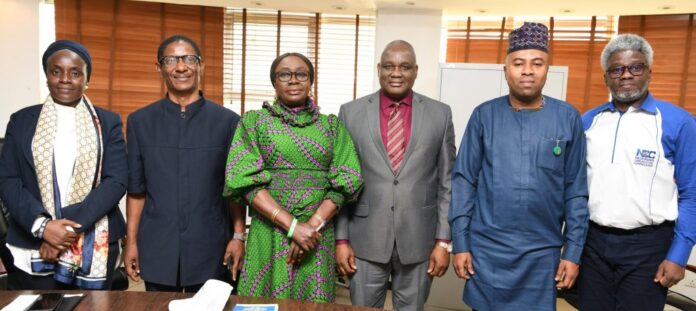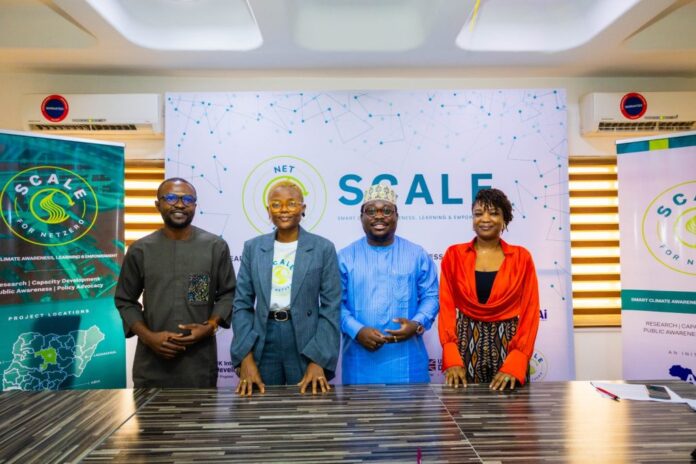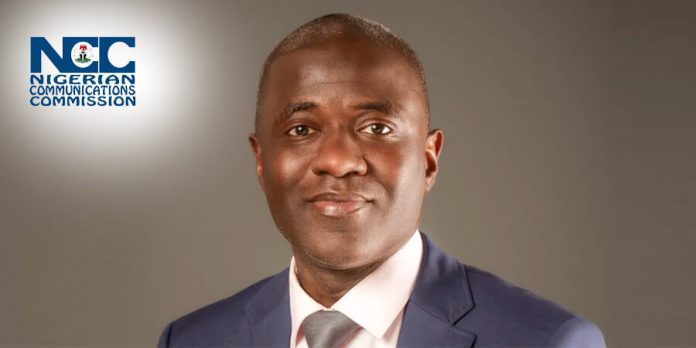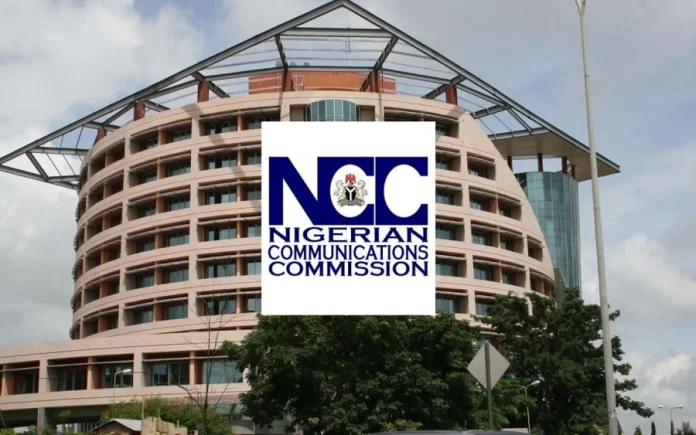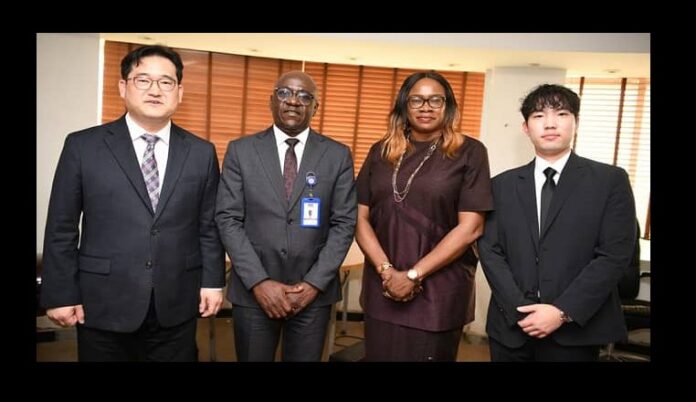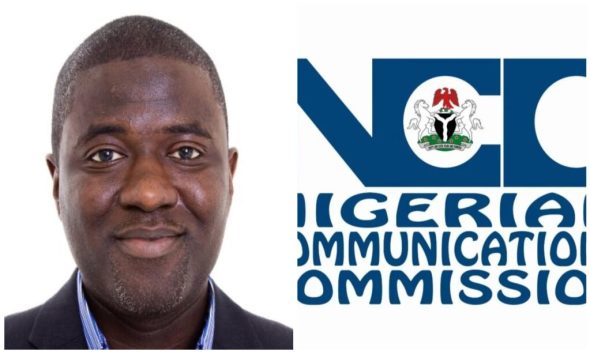The Nigerian Communications Commission, NCC, has noted it is a no-brainer that Artificial Intelligence (AI) and the Internet of Things (IoT) are revolutionising lives for the better, be it in education, healthcare delivery, living, public services, energy management, and much more.
The commission noted that in Nigeria, a young tech-savvy and upwardly mobile population is teeming, and exploring derivable benefits of digital technologies and are propelled by rapidly expanding internet access and steady broadband penetration, currently about 43 per cent.
It noted that the digital economy is poised for significant growth, positively impacting various sectors and benefiting the nation through enhanced connectivity and digital skills.
In a statement signed by Reuben Muoka, the Director of Press of NCC; the Commission said that digital transformation is happening globally at a record pace.
It pointed out that during the Covid-19 pandemic, for example, remote work and virtual collaboration tools took centre stage; platforms such as Zoom, Microsoft Teams, and Google Meet became—and still are—essential for meetings, conferences and team collaboration.
“E-commerce and online retail have transformed how consumers seamlessly order and receive goods and services.
“Even traditionally brick-and-mortar businesses are changing the ways they engage with their customers through introduction of digital solutions to improve the customer experience.
“It is a no-brainer that Artificial Intelligence (AI) and the Internet of Things (IoT) are revolutionising our lives for the better, whether in education, healthcare delivery, living, public services, energy management, and much more.
“Suffice to say, that underpinning this global digital transformation is the indispensable role of telecommunications infrastructure.
“Universal, affordable, reliable and fast telecom services are becoming social rights, as mobile networks and data-centres form the backbone for digital transformation by enabling the storage and processing of large amounts of data as well as the integration of digital technologies into numerous use cases.
“For President Bola Ahmed Tinubu, the Renewed Hope Agenda draws us all to a more promising outlook. Inherent in his agenda is the pledge to embolden and support the youth and women by harnessing emerging sectors such as the digital economy.
“In delivering this vision, the Honourable Minister of Communications, Innovation and Digital Economy, Dr. Bosun Tijani unveiled a blueprint appropriately titled – “Accelerating our Collective Prosperity through Technical Efficiency” with the goal of supporting Nigeria’s economic growth by enhancing productivity, facilitated by digital innovation.
“Acknowledging the criticality of resilient telecommunications infrastructure to a robust digital economy, Dr. Tijani’s Strategic Agenda 2023 — 2027 sets targets to achieve a 50 per cent improvement in Quality of Service (QoS) by the end of 2024; to boost Nigeria’s broadband penetration rate to 70 per cent by the end of 2025; to deliver data download speed of 25Mbps in urban areas and 10Mbps in rural areas by the end of 2025; to provide coverage for, at least, 80 per cent of the country’s population, especially the underserved and unserved populations by the end of 2026; to reduce the gap of unconnected Nigerians in rural areas from 61 per cent to less than 20 per cent by 2027; and to secure between 300 per cent to 500 per cent increase in broadband investment by the end of 2027.
“Drawing from the Strategic Agenda of the Ministry, Dr. Aminu Maida, the Executive Vice Chairman and Chief Executive Officer of the Nigerian Communications Commission, (NCC) has emplaced three Strategic Focus Areas for the Commission: The Consumers, the Industry and Licensees; and the Government.
“Dr. Maida’s approach to delivering on President Bola Tinubu’s Renewed Hope Agenda comes from the recognition that each of these stakeholders has a unique perspective and different, occasionally-paradoxical expectations of the Commission. His goal is to forge a path that carefully balances each stakeholder’s needs while meeting their expectations.
“Consider the Consumers—who are central to Dr. Maida’s focus—for example. His approach focuses on ensuring that they receive an enhanced Quality of Experience, beyond the narrow and very technically-evaluated Quality of Service.
“Quality of experience takes into account all touch points along the consumer’s journey in using telecom services from selection through onboarding, usage, support, and even off-boarding. This means that, consumers are empowered to make the right network selection, enjoy a seamless onboarding into the network of their choice, enjoy quality service at fair costs, receive responsive customer service and enjoy protected off-boarding where they chose to leave the network.
“To address consumer complaints on data depletion, the Commission has directed Mobile Network Operators (MNOs) to conduct an independent audit of their billing systems and is concluding a consultation process to simplify tariff plans. These initiatives would provide enhanced transparency to the consumer.
“The Commission, under Dr. Maida, rather than taking a national outlook on data collection for Quality-of-Service delivery, has adopted an approach where more granular data is collected from operators and analysed to determine quality of service at very small, local levels, to allow the deployment of optimised solutions or regulatory actions where needed.
“On the side of the Industry and Licensees of the Commission, Dr. Maida’s focus is aimed at forging a resilient industry and enhancing the delivery of regulatory services. Since he came on board, the Commission has shown commitment to tackling industry debt issues more seriously. It has also embarked on critical advocacy initiatives to address long-term challenges in the sector, including advocacy for designating telecom infrastructure as Critical National Infrastructure, as well as successfully persuading over six states to waive Right of Way (RoW) fees, even as he initiates discussions with more states. The Commission, under Dr. Maida’s leadership, is equally engaging with the Presidential Committee on Fiscal Policy and Tax Reforms towards addressing multiple taxation issues in the telecoms sector.
“In order to ensure that the industry is in line with current realities, the Commission is also undertaking a review of its extant Regulatory Instruments and Licensing Frameworks. For instance, Quality of Service Regulations have been reviewed to incorporate Key Performance Indicators (KPIs) for 5G and other participants that are critical to the Quality of Service.
“By achieving expected QoS KPIs, high-speed internet connectivity, and forging a resilient and innovative telecommunications industry, the Commission is actively supporting the Ministry’s vision of boosting economic growth and productivity through technological innovation, delivering on the promise of Renewed Hope for all Nigerians.”


